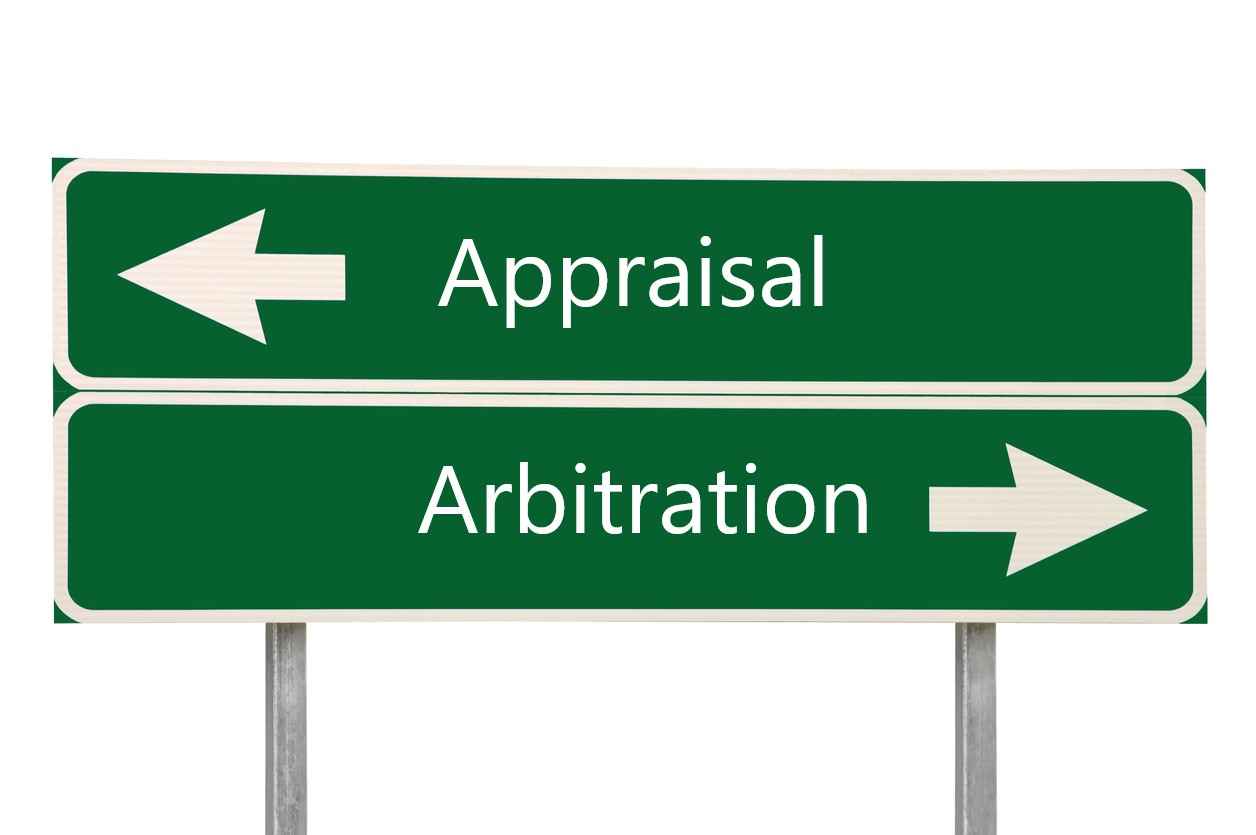The title to this post was a question posed to me by a number of people following an April Fool’s Day Insurance Journal article, With Florida Rulings, Will More Insurers Require Arbitration in Claims Disputes? The Insurance Journal noted that the Florida Office of Insurance Regulation approved a policy form calling for mediation and then arbitration for the resolution of property insurance disputes:
[T]he Florida Office of Insurance Regulation gave approval to a filing by American Integrity Insurance. The carrier, one of the largest property-casualty insurers in the state, had requested approval for a mandatory arbitration and mediation endorsement in homeowners multi-peril policies, starting April 22 for new business and June 21 for renewals.The approval signals a major shift in OIR’s longstanding view on arbitration, sources said.
The sources are correct. Previous Florida insurance commissioners were much more concerned about the protection of the policyholders’ interests.
The language of the form approved is no April Fool’s Day joke to policyholders who are not fully or promptly being paid by their property insurance carriers:
All Disputes, including disputes arising out of or related to this Agreement, between us and you, or any additional insured, omnibus insured, other person making a claim under the policy, or an assignee of post-loss benefits, (hereinafter referred to as “party” or collectively as “the parties”) whether arising out of State or Federal law, and whether based upon statutory duties, breach of contract, tort theories, punitive damages or other legal theories, irrespective of the basis for the duty or the legal theories upon which the claim is asserted, shall be exclusively and finally resolved through confidential binding arbitration (the “Arbitration”) as provided herein, in the county of residence premises and shall not be filed in a court of law, except any suit requesting injunctive relief, any action pursuant to §682.02(1), Florida Statutes, and any supplemental relief requested therein may be filed in the Circuit Court in and for the county of residence premises. The Disputes that are subject of this Binding Arbitration exclude your civil remedies to bring a civil action under section 624.155, Florida Statutes. Resolution through Binding Arbitration must be requested within five (5) years from the date of loss, and you must comply with all other provisions of this policy.
…
The Arbitration shall be conducted in accordance with the provisions of the Revised Florida Arbitration Code, chapter 682, Florida Statutes, this Agreement and pursuant to the Florida Rules of Civil Procedure, Florida Evidence Code, and substantive Florida law (including statutes, rules, regulations, case law, and common law). Further, nothing in this Agreement is to be construed to contradict an applicable Florida statutory grievance or mediation procedure.
This arbitration is a one arbitrator panel:
a) Within twenty (20) Business Days after of service of the Demand for Arbitration, the parties shall jointly select one (1) Arbitrator. The Arbitrator must be either a retired Florida circuit court or federal court judge, or a member of the Florida Bar with at least ten (10) years of experience as an attorney who has reasonable familiarity with the applicable arbitration rules, knowledge of insurance, contracts, and construction law (as may apply to the Dispute) in Florida.
b) If the parties cannot reach an agreement on an Arbitrator within twenty (20) days of receipt of the Demand for Arbitration, then either party may petition the Circuit Court in and for the county of residence premises, for the specific and sole purpose of appointing the arbitrator in accordance herewith. The arbitrator shall be independent of all parties, witnesses, and legal counsel. No past or present officer, director, affiliate, subsidiary, or employee of a party, witness, or legal counsel, nor may any person with a financial interest in the outcome of the proceedings, serve as an arbitrator in the proceeding. The parties agree that no attorneys’ fees or costs shall be paid or payable in such an action to appoint an arbitrator.
As indicated in the last sentence of the above provision, this arbitration provision agreement provides for no attorney’s fees:
The parties have the right to be represented by an attorney of their choosing in the binding arbitration proceeding. Each party will be responsible for paying for their own attorney in the event they retain an attorney.
Arbitration provisions, such as the one above, can be lethal to policyholder interests. Public Citizen notes in Arbitration Clauses in Insurance Contracts: The Urgent Need for Reform,
The growing use of binding, pre-dispute arbitration clauses poses a huge threat to insurance consumers. It represents a major shift in the balance of power between insurers and consumers that must be addressed by state legislators and insurance regulators.
Eleven states ban arbitration of property insurance disputes. Not Florida. While I strongly disagree with the approval of the form, Florida public policy is to allow alternative dispute resolution including arbitration. Since the legislature has not taken up suggested bans on arbitration over the last three sessions and given court approval of arbitration, the Insurance Commissioner may have found that this form allowing arbitration follows public policy.
This provision is a game changer. My prediction is that since the Florida Office of Insurance Regulation approved the form, many insurers will follow suit and apply for similar policy language. If the courts allow the provision to stand, the answer to the question will be “yes.”
Thought For The Day
A healthy democracy requires a decent society; it requires that we are honorable, generous, tolerant and respectful.
—Charles W. Pickering





